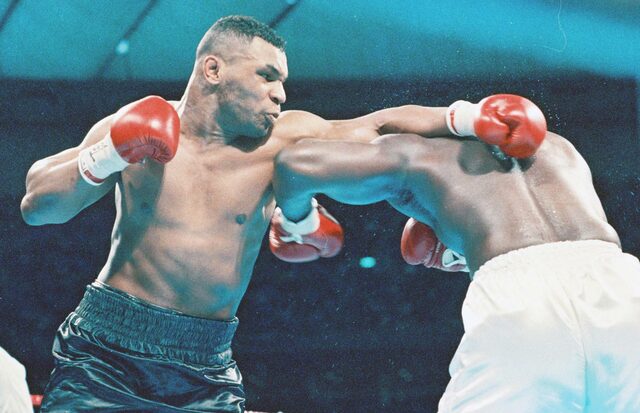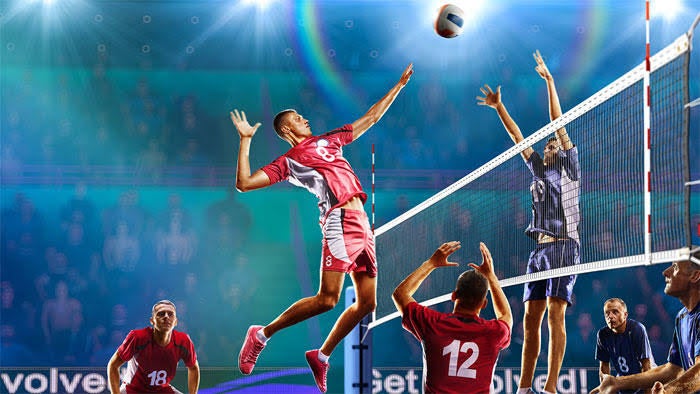
Cutting weight in the boxing world can be considered an important pre-fight ritual. In this sport, which has a strict class system, proper weight management often determines victory or defeat.
However, there are a wide variety of weight loss methods, and among them, a method called “water removal weight loss” is often talked about.
While this method can result in significant weight loss in a short period of time, it also carries the risk of seriously damaging the athlete’s health.
This article begins with the need for weight loss in boxing, the risks of traditional water loss weight loss, and discusses the real-life experiences of professional boxers and experts’ opinions on healthy and effective weight loss methods based on modern sports science. I will explain it in detail.
We hope this guide will help readers lose weight safely and efficiently.
目次
Why do boxers need weight loss?
The need for weight loss and weight management in boxing is a fundamental aspect of the sport, and its importance is deeply rooted in the class system.
Weight divisions in boxing are established to ensure fair competition between fighters and to minimize physical disadvantage.
Each weight class is based on a specific weight range, and athletes must prove they are within this range prior to competition.
Importance of class division
The purpose of the hierarchy is to ensure physical equality. Heavier fighters generally have longer reach (arm length) and tend to punch more powerfully.
Therefore, cross-weight matches are considered to be disadvantageous for lightweight fighters.
Class divisions exist to avoid such inequalities and ensure that skill, speed, and strategy determine victory or defeat.
The need for proper weight management
Proper weight management is essential for athletes to perform at their best within their weight class.
The main reason for weight loss is to meet weight limits while maximizing strength and endurance.
A properly managed weight loss process will help athletes pass the weigh-ins without harming their health and reducing their performance in matches.
However, the process of weight loss can sometimes involve extreme methods, such as “dehydration”, in which rapid weight loss is achieved by restricting water intake, which can pose serious risks to the athlete’s health. There is a gender.
Proper weight loss strategies should focus on maintaining long-term health and performance, combining a nutritionally balanced diet, adequate hydration, and planned training and recovery time.
This approach allows athletes to avoid problems such as nutritional deficiencies and dehydration while still achieving weight limits.
Additionally, proper weight management not only contributes to optimizing match-day performance, but also to an athlete’s long-term health and career sustainability.
Rapid weight loss or weight loss through dehydration may result in short-term weight loss, but it can disrupt the body’s water and electrolyte balance, leading to muscle loss, increased fatigue, and in worst cases, death. may cause serious health problems.
To avoid these risks, it’s important to lose weight gradually and drink enough nutrition and fluids.
It is also recommended to undergo regular medical check-ups during the weight loss process.
This allows the player’s health to be properly monitored and potential problems detected early.
Close collaboration with sports nutritionists and trainers is also essential to developing effective weight management strategies.
Finally, athletes should prioritize their body and health and focus on technique, strategy, and personal abilities without resorting to extreme weight loss methods.
In boxing, weight classes ensure equal competition, and it is not recommended to lose weight at the expense of your health.
Managing your weight in a healthy and balanced way, with the right guidance and support, is the key to long-term success and health.

What is water removal weight loss? Pitfalls of traditional weight loss methods
Dehydration refers to the extreme restriction of water intake that athletes use to rapidly lose weight in a short period of time in order to pass the pre-competition weigh-in.
This method is especially common in sports with weight classes such as boxing and martial arts.
Athletes severely limit their fluid intake in the days leading up to a match, and use a combination of sauna use and intense exercise to rapidly eliminate large amounts of water from their bodies.
The goal is to temporarily lose weight and pass the weigh-in, but this method comes with many risks and pitfalls.
Risk of water loss weight loss
- Dehydration : The most immediate risk is dehydration. When the body lacks water, the viscosity of the blood increases, which increases the workload on the heart. This can increase your risk of heart disease.
- Electrolyte imbalance : Water excretion also causes loss of important electrolytes such as sodium, potassium, and magnesium. Electrolyte imbalances can cause muscle spasms, irregular heartbeats, and sometimes fatal health problems.
- Decreased performance : Dehydration and electrolyte imbalances can severely impact athletic performance by reducing muscle strength, endurance, and reaction time.
- Increased recovery time : The body needs to restore fluid and electrolyte balance, and this takes time. As a result, players will also be affected by their post-match recovery.
- Long-term health issues : Repeated dehydration can increase your risk of long-term damage to your kidneys and developing eating disorders.
Pitfalls of traditional weight loss methods
Traditional methods of weight loss, especially water weight loss, may be effective for short-term goals, but can have a negative impact on an athlete’s health and long-term performance.
Such rapid weight loss can disrupt the body’s natural metabolic functions and cause loss of muscle mass, nutritional deficiencies, and psychological stress.
For safe and healthy weight management, an approach that combines gradual weight loss, a balanced diet, adequate hydration, and adequate rest and recovery is recommended.
Working with a sports nutritionist and trainer to develop a weight management plan tailored to each individual athlete is essential to optimizing athlete health, safety, and performance.

The science of water loss weight loss — how does it work?
Water weight loss is a method of rapidly reducing weight in a short period of time in order to pass the weigh-in. This process primarily works by intentionally reducing the amount of water in your body.
When practiced properly, it is possible to reach your goal weight with minimal risk, but it should always be done under the guidance of a professional.
Here we explain the science of dewatering weight loss and how to practice it relatively safely.
The science of water loss weight loss
Role of body water
Approximately 60% of the adult human body is composed of water, and this water is essential for maintaining life, including cell function, blood circulation, and body temperature regulation.
Dehydration weight loss focuses on temporarily reducing the amount of water needed to sustain life.
Effect on weight
Water makes up a large percentage of your body weight, so reducing your water intake can help you lose a lot of weight in a short period of time.
In particular, the body’s carbohydrate stores (glycogen) are tied to water, and depletion of glycogen also contributes to water loss.
Good practice
Gradual adjustment of fluid intake
When implementing weight loss by water removal, it is recommended that you gradually adjust your water intake a few days before weighing, rather than suddenly stopping your water intake.
This allows the body to gradually adapt to changes in water levels.
Electrolyte management
It is important to properly manage the intake of electrolytes such as sodium and potassium to avoid electrolyte imbalances caused by water excretion.
This helps minimize dehydration while maintaining your body’s water balance.
Careful use of saunas and sweat aids
You can also use saunas or sweat stimulants to induce sweating, but these are more stressful on the body and require proper hydration and recovery time.
Use with extreme caution and, whenever possible, under professional supervision.
Medical supervision and nutritional support
Water loss weight loss comes with risks, so it’s essential to work closely with a medical professional or nutritionist and constantly monitor your health.
A quick recovery plan (hydration and electrolyte replenishment, nutritional intake) after weigh-in is also important.
conclusion
Water loss can pose serious health risks if not managed properly.
Even if you are using it as a means to reach your goal weight, it should always be done with professional guidance, in a planned manner, and with your health as your top priority.
Choosing safer and more sustainable weight management methods can help maintain long-term health and performance for athletes.

A new weight loss method for modern boxers
Sports nutrition provides ways for athletes to perform optimally and manage their weight efficiently and healthily.
The new weight loss methods applied to modern boxers are based on scientific evidence and revolve around approaches that are sustainable and pose minimal risks to health.
Below are efficient and healthy weight loss strategies from a sports nutrition perspective.
1. Balanced intake of macronutrients
- Protein : Essential for muscle repair and growth and can help you feel fuller longer, which can help prevent overeating. Aim for 2.2g of protein per 1kg of body weight.
- Complex carbohydrates : serve as a long-term energy source and support performance during training. Make up 40-60% of your overall calorie intake.
- Healthy fats : Maintain cell health and provide essential fatty acids. Aim for 20-30% of your overall calorie intake.
2. Energy balance management
Aim for sustainable weight loss by calculating appropriate calorie intake and creating a gradual calorie deficit.
Avoid extreme calorie restriction and aim for weight loss of 0.5-1 kg per week.
3. Optimize water intake
It is important to avoid dehydration and maintain the body’s water balance.
Drink plenty of water before, during and after training and throughout the day, and adjust your water intake specifically depending on your training intensity and environment.
4. Timing and food quality
- Meal Timing : Focus on pre- and post-workout meals to optimize energy levels and promote recovery.
- Diet quality : Reduce your intake of processed foods and sugar, and focus your diet on whole grains, fresh fruits and vegetables, and quality protein sources.
5. Proper use of supplements
Consider taking vitamin and mineral supplements if needed.
This product is selected under the advice of a doctor or nutritionist, especially in order to supplement the nutrients that tend to be deficient during diets.
6. Sleep and recovery
Getting enough sleep and adequate recovery time is essential for balancing stress hormones, controlling appetite, and managing weight.
7. Continuous monitoring
Regularly monitor your weight, body fat percentage, and performance indicators and adjust your plan.
This will help you reach your goals in a healthy and sustainable way.
These strategies provide a foundation for boxers to efficiently manage their weight without compromising their health and being in optimal condition for the fight.
Working with a professional and creating a plan tailored to your individual needs is the key to success.

The path to safe and effective weight loss
Weight loss is an important goal for many people, but doing so in a safe and effective manner is paramount.
Sustainable weight management isn’t just about losing weight, it’s about achieving your goals while staying healthy.
Below, we introduce a holistic approach to successful weight loss and emphasize the importance of sustainable weight management.
Create a plan tailored to your individual needs
- Consider individual lifestyle, preferences, and health status : Everyone’s lifestyle, dietary preferences, and physical conditions are different. That’s why it’s important to create a weight loss plan tailored to your individual needs.
- Setting realistic goals : The key to staying motivated is to set realistic and achievable short-term and long-term goals and progress while feeling a sense of accomplishment.
nutritionally balanced diet
- Balanced diet : It’s important to have a balance of protein, complex carbohydrates, and healthy fats in every meal.
- Meal planning : Planning your meals in advance can help you avoid unhealthy food choices and maintain nutritional balance.
regular physical activity
- Moderate exercise : Combining exercise that gets your heart rate up several times a week with strength training that builds your muscles will help you burn calories and improve your basal metabolic rate.
- Active lifestyle : It is also important to increase the amount of activity in your daily life. For example, take the stairs or increase the distance you walk to work.
Sleep and stress management
- Adequate sleep : Getting good quality sleep helps balance the hormones that control your appetite and prevents you from overeating.
- Stress management : Stress can lead to overeating, so it’s important to manage stress through relaxation techniques and hobbies.
Ongoing support and monitoring
- Expert support : Get expert advice from a nutritionist or personal trainer to help you lose weight safely and effectively.
- Monitor your progress : Monitor your progress regularly, including tracking your weight and body fat percentage, and adjust your plan as needed.
Sustainable weight management is a long-term commitment to a healthy lifestyle, not a fad diet.
Safe and effective weight loss requires a holistic approach that combines four pillars: a balanced diet, regular exercise, adequate sleep, and stress management.
This process may take some time, but it’s the best way to stay healthy and reach your goals.




